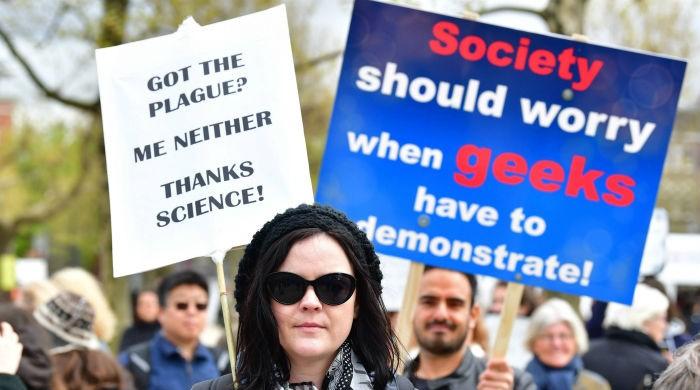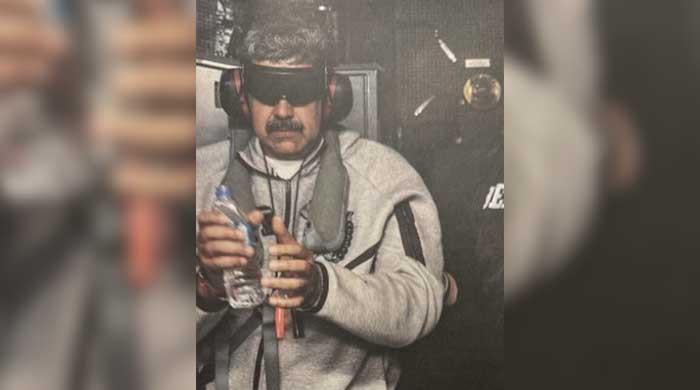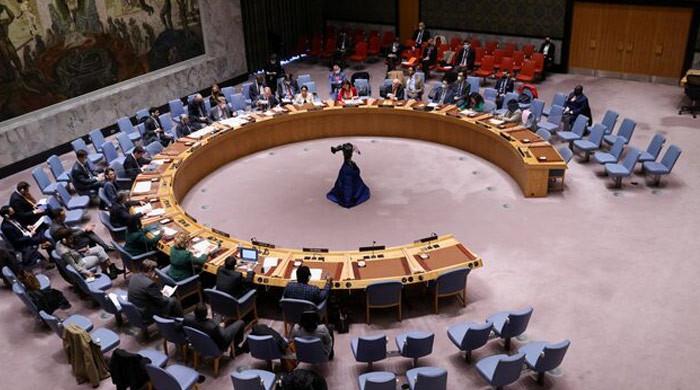‘Keep Our Science Great’: Thousands march worldwide to fight ´alternative facts´
Hundreds streamed onto the Washington Mall disturbed by the rise of so-called "alternative facts" around crucial issues like climate change following the election of Donald Trump
April 22, 2017

Thousands of people joined a global March for Science on Saturday with Washington the epicentre of a movement to fight back against what many see as an "assault on facts" by populist politicians.
Hundreds streamed onto the Washington Mall for a festive day of music, speeches and teach-ins by scientists disturbed by the rise of so-called "alternative facts" around crucial issues like climate change following the election of Donald Trump.
"We have no Planet B," read one of the signs carried by demonstrators, many of whom sported "Keep Our Science Great" caps as they arrived from around the country on Earth Day to remind fellow citizens of the importance of science to their daily lives.
At a time when the Earth has marked three consecutive years of record-breaking heat, and ice is melting at an unprecedented rate at the poles, risking massive sea level rise in the decades ahead, some marchers say it is more important than ever for scientists to communicate and work toward solutions to curb fossil fuel emissions.
"Everything we touch, science has helped us understand better," said Ruth Varner, a biochemist from the University of New Hampshire.
"We´re all busy every day, so if you´re not surrounded by scientists talking about this you might forget how important it is to you."
Rainy weather did not dampen the enthusiasm of the Washington crowd, as people chatted, introduced themselves to strangers, or hailed colleagues they came across in the throng.
Their movement was echoed in hundreds of satellite events across the United States and around the world, from Sydney to Accra.
Organisers stress their protest is non-partisan, but concerns about the challenges to the role of science in society have spiked under Trump´s presidency.
He has proposed deep cuts in funding for scientific research, elevated opponents of climate pacts and environmental regulations to cabinet-level positions, and drawn support from conservative Christians who challenge the teaching of evolution in US schools.
"If this president has his way, science is in danger but I think there will be a lot of resistance from Congress," said Elisabeth Johnston, a retired biologist.
Protesters were to march to the US Capitol later in the day to carry their pro-science message.
Some in the Washington crowd were not opposed to Trump per se, but felt that science was a public good that should receive non-partisan support, as it historically has.
Lowell Jarvis, a 57-year-old air and water quality expert, said he agreed with Trump on some issues, but not the cuts on funding for research.
"We need to invest in people and the environment," he said.
Satellite events
In London, hundreds of people marched from the Science Museum to the Houses of Parliament, holding up signs with messages like "Science is Sexy" and "Less Invasions, More Equations."
The London rally was attended by actor Peter Capaldi, who plays TV´s time-travelling hero of science, Dr Who.
In Ghana, organisers used the day for a teach-in at a beachside hotel in Accra about environmental issues of local concern like the impact of plastic waste on the environment.
"As you walk around our beaches you see it is killing everything," said Cordie Aziz, an American activist involved in plastics recycling. "It´s killing our fish, we have flooding in our communities, we have a rise of environmental diseases."
Vocal protesters in Sydney wearing white lab coats called on politicians to support the scientific community. "We need thinkers not deniers," read one banner.
´Fake news´ fears
Demonstrators turned out across Australia, in Melbourne, Brisbane, Perth, Adelaide and other cities, as well as Wellington and Auckland in New Zealand.
"In this day and age, there´s so much fake news and alternate facts going around that it´s important to remember that science is what has built the society we know today," Parissa Zand, who was at the Sydney march with her molecular biologist mother, told AFP.
High-school science teacher Byrne La Ginestra said "we need to... teach people that science isn´t a political agenda, it´s just facts."
Protestors in major university cities in Europe posted pictures on Twitter of marches in Bonn, Helsinki, Munich and Stockholm.
In Paris, a banner in French read: "We are the resistance against the orange menace in Washington! Defend science!"
Other rallies were scheduled in Brazil, Canada, Japan, Mexico, Nepal, Nigeria and South Korea.
Scientists ´energised´
"Seeing the assault on fact-based thinking, scientists are energised," Paul Hanle, chief executive officer of Climate Central, an independent organisation of scientists and journalists, wrote in an op-ed this week.
Scientists "are not famous for their camaraderie," said professor of carbon management at the University of Edinburgh, David Reay. "We are trained to question, criticize and, where needed, contest each other´s work.
"That we are now marching together is testament to just how threatened our disparate community feels."
Irfan Aftab reports: Berlin joins the protest
In Germany, demonstrations were planned especially in university cities.
"There is no Planet B" or "There is no room for alternative facts in the surgery" read the banners and placards.
On Saturday afternoon 11,000 people came out to demonstrate in Berlin, scientists among them.
"Berlin has a very special obligation to stand for freedom. That is why we are showing solidarity to the persecuted academics and the institutions that are threatened by their existence," said Berlin's governing mayor Michael Müller (SPD).
Protest organisers pointed out that this was not an "anti-trump" event, but was directed against the rising anti-science sentiment in many countries. Giving examples for the disregard for scientific knowledge, the organisers mentioned the dismissal of "man-made climate change as an invention”, rejection of evolutionary theory, and terming vaccination is scourged as a “devil's toy”.
Many prominent academicians, including the presidents of the three major universities in Berlin, Sabine Kunst (Humboldt), Peter-André Alt (FU) and Christian Thomsen (TU), participated in the event.









